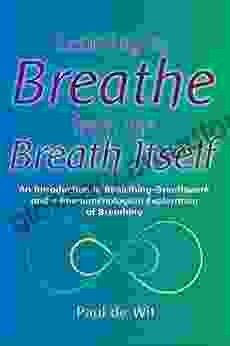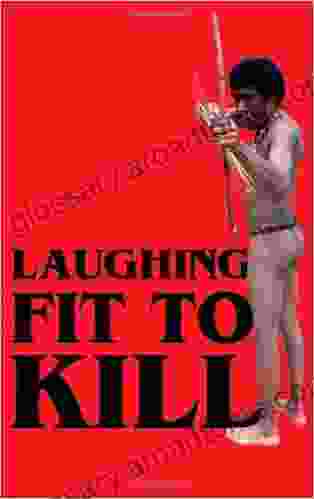Theory, Science, and Research: Unraveling the Intellectual Tapestry from Hellenism to the 21st Century

4.6 out of 5
| Language | : | English |
| File size | : | 2633 KB |
| Text-to-Speech | : | Enabled |
| Screen Reader | : | Supported |
| Enhanced typesetting | : | Enabled |
| Word Wise | : | Enabled |
| Print length | : | 575 pages |
| Lending | : | Enabled |

Science, the pursuit of knowledge through systematic observation, experimentation, and logical reasoning, has shaped the course of human civilization. From the inquisitive minds of ancient Greek philosophers to the groundbreaking discoveries of modern scientists, the evolution of scientific thought has been marked by a continuous interplay of theories, empirical evidence, and rigorous research.
The Seeds of Rational Inquiry: Hellenism and the Birth of Science
The foundations of scientific thought can be traced back to the golden age of Hellenism in ancient Greece. Figures like Thales, Pythagoras, and Aristotle laid the groundwork for rational inquiry, emphasizing the importance of observation, logic, and mathematics in understanding the natural world.
Plato's Academy became a hub of philosophical and scientific discourse, where scholars explored ideas of scientific method and the nature of reality. Aristotle's writings on physics, biology, and logic laid the groundwork for scientific disciplines that would endure for centuries.
The Middle Ages: Faith and Reason in Conflict
During the Middle Ages, scientific thought was overshadowed by religious dogma. The rise of Christianity and the dominance of the Church led to a focus on faith and revelation as the primary sources of knowledge.
However, scholars like Roger Bacon and Albertus Magnus sought to reconcile faith and reason. They translated ancient Greek texts into Latin, preserving scientific knowledge for future generations.
The Renaissance: A Rebirth of Scientific Inquiry
The Renaissance witnessed a renewed interest in classical learning and scientific inquiry. Humanist scholars like Leonardo da Vinci and Nicolaus Copernicus challenged traditional scientific beliefs, relying on observation and experimentation to uncover the secrets of nature.
Copernicus's heliocentric theory of the solar system revolutionized astronomy, while Leonardo's anatomical sketches laid the foundation for modern biology. The Renaissance marked the beginning of a shift away from faith-based knowledge and towards empirical science.
The Scientific Revolution: The Birth of Modern Science
The Scientific Revolution of the 16th and 17th centuries marked a watershed moment in the history of science. Figures like Galileo Galilei, Johannes Kepler, and Sir Isaac Newton developed new scientific instruments and methodologies, paving the way for groundbreaking discoveries.
Galileo's use of the telescope to study the heavens led to the confirmation of Copernicus's heliocentric theory. Kepler's laws of planetary motion described the elliptical orbits of planets, while Newton's laws of motion and universal gravitation revolutionized our understanding of the physical world.
The Enlightenment and Beyond: The Rise of Modern Scientific Institutions
The Enlightenment further accelerated the progress of science. Scientific societies and academies were established, providing platforms for the exchange of ideas and the dissemination of knowledge.
The 18th century saw the emergence of modern scientific disciplines such as chemistry and geology. The invention of the microscope opened up new avenues for biological research, leading to the discovery of microorganisms and the foundations of cellular biology.
The 19th and 20th Centuries: Scientific Specialization and Technological Advancements
The 19th and 20th centuries witnessed an explosion of scientific specialization and technological advancements. The development of new research tools and techniques, such as the electron microscope and the computer, enabled scientists to probe deeper into the mysteries of the natural world.
The theory of evolution by natural selection, proposed by Charles Darwin, revolutionized our understanding of the diversity of life on Earth. The discovery of radioactivity and the development of quantum mechanics laid the groundwork for modern physics and nuclear energy.
The 21st Century: Frontiers of Science and Interdisciplinary Collaboration
In the 21st century, scientific research continues to push the boundaries of human knowledge. Interdisciplinary collaboration has become essential to tackling complex global challenges such as climate change and artificial intelligence.
The advent of the internet and big data analytics has transformed the way scientists collect, process, and analyze data, leading to unprecedented insights into complex systems.
: The Enduring Legacy of Scientific Inquiry
The evolution of scientific thought from Hellenism to the 21st century is a testament to the enduring power of human curiosity and the relentless pursuit of knowledge. From the philosophical musings of ancient Greece to the cutting-edge research of modern times, science has been a driving force in shaping our understanding of the world and our place within it.
As we continue to explore the frontiers of science, let us celebrate the contributions of countless scientists throughout history who have paved the way for our present-day scientific achievements. May we never cease to question, experiment, and discover, for in the pursuit of knowledge lies the promise of a better future for all.
4.6 out of 5
| Language | : | English |
| File size | : | 2633 KB |
| Text-to-Speech | : | Enabled |
| Screen Reader | : | Supported |
| Enhanced typesetting | : | Enabled |
| Word Wise | : | Enabled |
| Print length | : | 575 pages |
| Lending | : | Enabled |
Do you want to contribute by writing guest posts on this blog?
Please contact us and send us a resume of previous articles that you have written.
 Book
Book Novel
Novel Page
Page Chapter
Chapter Text
Text Story
Story Genre
Genre Reader
Reader Library
Library Paperback
Paperback E-book
E-book Magazine
Magazine Newspaper
Newspaper Paragraph
Paragraph Sentence
Sentence Bookmark
Bookmark Shelf
Shelf Glossary
Glossary Bibliography
Bibliography Foreword
Foreword Preface
Preface Synopsis
Synopsis Annotation
Annotation Footnote
Footnote Manuscript
Manuscript Scroll
Scroll Codex
Codex Tome
Tome Bestseller
Bestseller Classics
Classics Library card
Library card Narrative
Narrative Biography
Biography Autobiography
Autobiography Memoir
Memoir Reference
Reference Encyclopedia
Encyclopedia Susan L Harrington
Susan L Harrington Garth W Paltridge
Garth W Paltridge Gerald Confienza
Gerald Confienza Frank Landis
Frank Landis Lewis Richard Farnell
Lewis Richard Farnell Rachel Wright
Rachel Wright George Sutherland
George Sutherland Gerry Agar
Gerry Agar George A Giuliani
George A Giuliani Francis X Dolan
Francis X Dolan Shimon Edelman
Shimon Edelman Frank C Russell
Frank C Russell Pamela Dell
Pamela Dell Maya Dusenbery
Maya Dusenbery Garth Sundem
Garth Sundem Geoffrey Scarre
Geoffrey Scarre G Edward White
G Edward White Germaine Greer
Germaine Greer Galina St George
Galina St George Larry Kaniut
Larry Kaniut
Light bulbAdvertise smarter! Our strategic ad space ensures maximum exposure. Reserve your spot today!

 Vernon Blair51 Blackswamp Cyprus Karsilamas Dance: An Unforgettable Experience You Don't...
Vernon Blair51 Blackswamp Cyprus Karsilamas Dance: An Unforgettable Experience You Don't... Jaylen MitchellFollow ·13.6k
Jaylen MitchellFollow ·13.6k William GoldingFollow ·11.5k
William GoldingFollow ·11.5k Theodore MitchellFollow ·12.5k
Theodore MitchellFollow ·12.5k Pete BlairFollow ·4.1k
Pete BlairFollow ·4.1k Bob CooperFollow ·8.3k
Bob CooperFollow ·8.3k Travis FosterFollow ·8.2k
Travis FosterFollow ·8.2k Marcel ProustFollow ·6.1k
Marcel ProustFollow ·6.1k Francis TurnerFollow ·5.5k
Francis TurnerFollow ·5.5k

 Chinua Achebe
Chinua AchebeLetters to My Bipolar Self: A Journey of Hope, Healing,...
Bipolar disFree...

 John Parker
John ParkerLearning to Breathe from the Breath Itself: A...
In the whirlwind of modern life, finding...

 Beau Carter
Beau CarterExperiences In Psychoanalysis: A Journey into the...
Are you fascinated by the...

 George Hayes
George HayesExperiences Of The Neurological Condition Dystonia
Navigating the Labyrinth of a Complex...

 Jerome Powell
Jerome PowellOver 50 Keto Meal Prep Recipes: Your Essential Guide to...
Welcome to the world...
4.6 out of 5
| Language | : | English |
| File size | : | 2633 KB |
| Text-to-Speech | : | Enabled |
| Screen Reader | : | Supported |
| Enhanced typesetting | : | Enabled |
| Word Wise | : | Enabled |
| Print length | : | 575 pages |
| Lending | : | Enabled |












